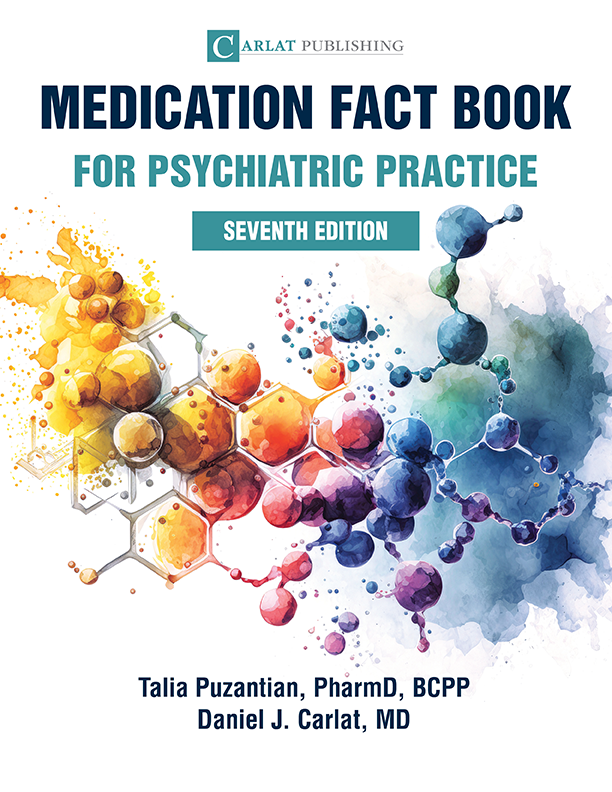Is Bipolar Disorder Overdiagnosed?
Many review articles on bipolar disorder in recent years begin with an introductory paragraph about the “underdiagnosis” and “undertreatment” of bipolar disorder. Indeed, it is likely that many bipolar patients are mistakenly diagnosed with major depression, because the majority of mood episodes in bipolar disorder are depressive episodes. Psychiatrists have appeared to take these warnings to heart, and may have become overly enthusiastic about the diagnosis. The first indication of this came last year, when epidemiologists at Columbia reported that bipolar disorder diagnosis in children had increased 40-fold from 1994 to 2003 (Moreno et al., Arch Gen Psychiatry 2007;64(9):1032-1039). Many commentators wondered if this dramatically increased prevalence reflected overdiagnosis, rather than an accurate detection of true pathology.
In June of this year, Dr. Mark Zimmerman and his colleagues published a paper indicating that overdiagnosis may be a problem in adults as well as children (Zimmerman et al., J Clin Psychiatry 2008;69:935-940). We caught up with Dr. Zimmerman between his projects to ask him about his research.
TCPR: Dr. Zimmerman, you recently published a paper in which you suggested that bipolar disorder is overdiagnosed in some populations. Can you describe that research?
Dr. Zimmerman: Sure. We enrolled 700 people sequentially from referrals to a community based outpatient practice in Rhode Island. These patients were fairly representative of many psychiatric practices. Most of them have medical insurance, a high percentage are female with at least a high school education, and the mean age is 39.9. We asked each of these patients whether they had ever been given the diagnosis of bipolar disorder or manic depression by a health care provider, and we found that slightly more than 20% (145 patients) had been given this diagnosis at some point.
TCPR: And then you ascertained whether or not they actually met those criteria?
Dr. Zimmerman: Yes, we gave these patients an extensive structured diagnostic interview called the SCID (Structured Clinical Interview for DSM-IV). The interview was done blind to the results of their response on the questionnaire of whether they had been previously diagnosed with bipolar disorder. And we found that fewer than half (43.4%) of the 145 patients who reported that they had been previously diagnosed bipolar were diagnosed bipolar on the SCID.
TCPR: The implication being that half of all patients who are told they have bipolar disorder do not. But did you use excessively narrow criteria in the SCID interviews?
Dr. Zimmerman: No, we asked about all four possible variations of bipolar disorder: bipolar disorder type I, bipolar disorder type II, bipolar disorder NOS (not otherwise specified), and cyclothymic disorder. We were even willing to diagnose as bipolar NOS those patients with hypomanic episodes that were shorter than the DSM-IV requirement of 4 days. So I believe we made a real attempt to capture all the patients with any version of bipolar disorder. And yet, we still found a very substantial rate of overdiagnosis.
TCPR: How do you explain your findings?
Dr. Zimmerman: Part of the difference is likely due to the possibility that some of the patients that we did not diagnose had been diagnosed in the past by clinicians using broader criteria. For example, some psychiatrists consider patients with antidepressant- induced or substance-induced hypomania to have bipolar disorder — we did not include such patients in our category of bipolar disorder NOS. [Ed. Note: According DSM-IV, antidepressant-induced or substance-induced hypomania would not be categorized as bipolar disorder NOS.]
TCPR: Assuming that you have discovered a genuine overdiagnosis problem, what are some possible reasons for this?
Dr. Zimmerman: Marketing efforts and direct-to-consumer advertising probably play a role. We have seen patients who have been urged by ads to take screening questionnaires, and then they come to their doctors wondering if they have bipolar disorder. In these cases, insufficient diagnostic rigor can lead to overdiagnosis. There are similar marketing campaigns directed toward physicians by pharmaceutical companies. There has been such encouragement to avoid underrecognition that I suspect the pendulum has swung too far toward overrecognition. Finally, clinicians tend to diagnose conditions that they feel more comfortable treating. For example, if they are unsure whether a patient has bipolar disorder or borderline personality disorder they might err on the side of diagnosing a disorder that is medication responsive, as well as more likely to be covered by insurance, and perhaps less stigmatizing.
TCPR: What’s the clinical significance of overdiagnosis?
Dr. Zimmerman: One is the potential for overtreatment, and the consequent overexposure to side effects of mood stabilizer treatment. Another potential problem is the degree to which some individuals, once diagnosed with bipolar disorder, cling to the diagnosis, and get very invested in it. They start looking for the “magic” pill. And in some cases, they should be more open to the idea of psychotherapy.
Newsletters
Please see our Terms and Conditions, Privacy Policy, Subscription Agreement, Use of Cookies, and Hardware/Software Requirements to view our website.
© 2025 Carlat Publishing, LLC and Affiliates, All Rights Reserved.


_-The-Breakthrough-Antipsychotic-That-Could-Change-Everything.jpg?1729528747)



